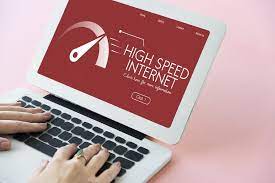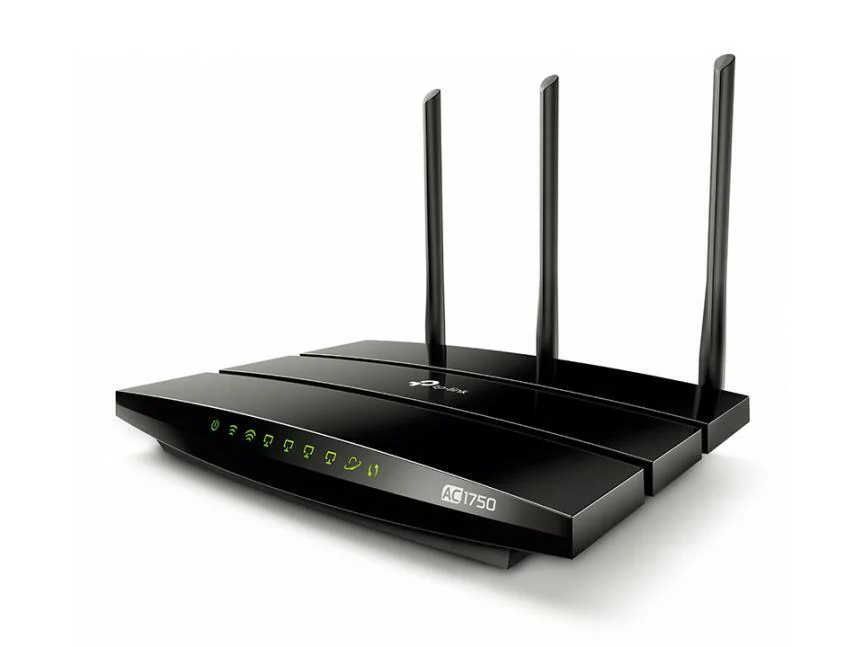Table of contents
What is a VPN? A Guide to Virtual Private Networks: Moment’s world is connected by the Internet. In an moment, businesses conduct deals across the globe and people communicate with anyone, anywhere, at any time. A huge portion of the world’s frugality now relies on the World Wide Web. While these interconnections brought the world together, it comes with a cost a loss of sequestration. Enter the virtual private network( VPN).
So what’s a VPN? Simply put, a VPN hides your information by transferring it through an translated lair connected to a separate Internet network. still, there’s further to a VPN than meets the eye. Whether you ’re a business proprietor or an individual, they give peace of mind knowing your data remains secure.
However, read further for a complete overview of virtual private networks, If this sounds confusing. We cover what they are, how they work, and more.
What’s a VPN?
A virtual private network( VPN) is a service that protects your particular data by routing your Internet connection to a remote garçon. When you use the Internet with a VPN, your data stays translated. This increases Internet sequestration by making it nearly untraceable. It shields you from prying eyes and cybercriminals using the same WiFi connection as you.
For illustration, when visiting a coffee shop or field, you probably connected to their free WiFi. Public WiFi is great for furnishing free Internet access. still, it comes at a cost, as anyone using the same public WiFi potentially has access to your particular data. This includes credit card figures, business connections, and your Social Security Number. This threat remains why one of our top WiFi security tips involves using a VPN when penetrating public WiFi.
How does a VPN work?
Now let’s see how a VPN works. Your computer, smartphone, and tablet generally includes an Internet protocol( IP) address; relating all of your online exertion. When you log onto your computer you generally connect to your Internet service provider( ISP).
Your ISP provides access to the Web. When you visit any websites or online coffers, they save your Internet business to their waiters. This means your ISP potentially shares your browsing history to third parties like the government and advertisers.
How does a VPN handle your Internet exertion? A VPN prevents your ISP from penetrating your browsing history by creating a secure connection to another network.
A VPN provider creates a connection to its own IP address. When you connect to the Internet with a VPN turned on, you use the VPN garçon’s IP address, not your own. Your VPN provider probably has waiters located thousands of long hauls down and each over the world. This means through a VPN connection, your Internet exertion appears as if it’s located at one of these remote waiters, not your own.
Along with hiding your hunt exertion from your ISP, VPNs produce an translated lair between your original network and the VPN provider’s remote waiters. When using a public WiFi network, your translated data is now nearly impenetrable, leaving hackers and eavesdroppers with climbed data.
Why do I need a VPN?
This all sounds confusing and gratuitous, so why use a VPN? Businesses firstly used VPNs to connect multiple services securely. still, individualities moment use particular VPNs to make a home network.
They also keep their dispatches and particular data secure when using WiFi networks. Ultimately, you presumably do n’t feel comfortable knowing your online exertion is being tracked and watched. However, use a VPN, If you want online security. So let’s look at some other reasons for using a virtual private network.
- Access to streaming services: Streaming services like Netflix, Hulu, and Disney, along with professional sports broadcasts, are only available in certain countries. When traveling, access to your suite of streaming services becomes limited. With a VPN, simply pick an IP address in your home country to gain access to your streaming platforms.
- Traveling constantly: Simply put, countries might help people from penetrating certain websites. This means penetrating some websites you take for granted in your home country becomes insolvable in a country you ’re visiting. With a VPN, just choose a remote garçon in a different country to pierce defined websites.
- Regularly connecting to public WiFi: Flash back, when connecting to free public WiFi, hackers might block your data and steal your prints, watchwords, and particular lines. This is true indeed if the public WiFi is word defended. A VPN prevents cybercriminals from stealing your information because it encrypts your data, making it nearly insolvable to crack. This fact lets you protect online, check your bank statements, and access your social media accounts without solicitude.
- Fresh Security: VPNs cipher data transfers when you use the Web. Encryption encodes your nonpublic information; turning it from plain textbook to cipher textbook. Only authorized druggies with the right encryption key are suitable to decipher it. When VPNs are used, only computers at each end of the translated lair access the information. This keeps all of your data, including hunt history, banking information, lines, and prints fully secure.
- Further sequestration: So you look at a product online and latterly see advertisements for the same or analogous products. This is because your ISP is fairly allowed to partake your hunt history with third parties using your IP address. Your computer’s IP address provides a riotous quantum information about you. This includes your download history and position data. A VPN securities your online history from advertisers, government agencies, and other third parties. This lets you browse the Internet without your ISP tracking your digital vestiges.
How do I get a VPN?
There are multitudinous VPN service providers on the request moment available to businesses and individualities. This makes it extremely easy to get a VPN. You also do n’t need to switch ISPs or buy any fancy outfit to use a VPN. Simply find a VPN service provider that meets your requirements. Some popular options include:
- ExpressVPN
- Norton Secure VPN
- CyberGhost
- Surfshark
- NordVPN
- TunnelBear
Once you subscribe up with a VPN service provider, simply go to your computer’s settings and add a VPN connection.
Choosing a Virtual Private Network provider
When searching for a VPN provider, find one that has your stylish interests in mind. Consider these factors when deciding
Data Limits: If your Internet operation is high, insure your VPN provider offer sun-metered bandwidth with no data limits. This lets continue with your Internet operation without fear of those dreaded data caps.
Price: Each VPN provider obviously comes with a price, and the more precious option is frequently more. While there are free VPN service providers available, anticipate to be bombarded with announcements. maybe some of your particular information gets collected and transferred to third parties? utmost VPN providers charge anywhere between$ 3 and$ 15 per month. These options are frequently more secure and give further bandwidth.
VPN Protocols: Multitudinous VPN protocols live, which give the rules for the connection between you and the VPN garçon. When choosing a VPN provider, make sure they use the most current protocols. The three common protocols are Point- to- Point Tunneling Protocol( PPTP), Subcaste 2 Tunneling Protocol( L2LP), and OpenVPN. Of the three, OpenVPN frequently provides the strongest security.
Accessibility: When using multiple bias, similar as a laptop, smartphone, and tablet, you presumably want your VPN to be accessible on each device. So make sure your VPN provider supports access to multiple devices.
Privacy: One of the most common reasons people use VPNs is to enhance their sequestration. still, not every VPN respects your sequestration. So read the terms and conditions to corroborate the VPN provider has a no- log policy. This means they wo n’t keep track of your online activities.
Location: Another reason people use VPNs involves access to geo- blocked websites and coffers. For illustration, when traveling outside of the U.S. you may need a VPN to pierce your streaming services. So make sure your VPN provider has waiters in the locales you need.
What are the advantages of a VPN?
As sated by PCWorld, “ VPNs can be helpful tools for guarding online sequestration, and you need not be an office drone to enjoy their benefits. ” VPNs offer a host of charming advantages. Creating a VPN at home allows gamers to produce a original area network( LAN) and intimately connect with musketeers from other areas. Or, businesses keep nonpublic information secure when working from remote areas. ahead long, anticipate everyone to enjoy particular, secure networks for home, work, and play.
Some advantages of VPNs include:
- Security: When using a VPN, all of your important information, similar as nonpublic lines, banking data, and watchwords travel through an translated lair. This makes it delicate for hackers to decrypt the law and access your information.
- Privacy: When connecting to your ISP, your connection is open to the world. This lets arbitrary people and third parties like advertisers and the government look at your data, log it, and use it.
They also look at your IP address and show targeted advertisements; maybe indeed charging different prices for products you were viewing online. As noted before, a VPN encrypts your data and hides your IP address. This makes it challenging for third parties to track your activity.
Access blocked websites: Countries around the world have the capability to circumscribe access to certain content, similar as social networks, games, and search machines like Google. also, educational institutions and workplaces frequently use firewalls to circumscribe access to certain websites to block unhappy content or increase productivity. With a VPN, you ’ll be suitable to bypass pollutants and open defined websites.
Remote access: For businesses, VPNs increase productivity because they make information available ever from anywhere, similar as an hand’s home or an office located overseas. However, they simply connect to the VPN and access information and lines they may need. If a problem arises at work and an hand is n’t at the office.
What are the disadvantages of a VPN?
While there are multitudinous benefits of VPNs, they also include a many downsides. Let’s look at some disadvantages of a VPN to help guide your decision- making process
Legality issues Unfortunately, some countries suppose private networks illegal. When living in or traveling to a country where VPNs are illegal, you might face jail time or pay a hefty fine.
Decreased performance When using a VPN, it must connect to a private garçon before penetrating a website. This causes performance issues and longer cargo times. When passing slow Internet pets with a VPN, use our Internet speed test to understand the quality and effectiveness of your connection.
Privacy problems In some cases, you might not have complete obscurity when using a VPN. Depending on the terms and conditions, some VPN providers track your exertion and shoot it to third parties. Or, a VPN provider might have to misbehave with the government and partake your particular information to civil, state, or original authorities.
As with utmost opinions in life, it’s important to weigh the pros and cons to determine the right choice for you. VPNs boast numerous salutary advantages guarding your information on the Web. still, some disadvantages might beget problems down the line.
Crucial takeaways on the Virtual Private Network
Virtual private networks produce a secure connection between your computer and a remote garçon by creating an translated lair for your private information to travel through. They ’re a popular security measure for businesses and individualities to cover nonpublic information. Then are some crucial takeaways on VPNs
- VPNs cipher your data to make it untraceable by prying eyes and hackers.
- Public WiFi networks are vulnerable, which means your information is at threat. A VPN protects your data when connecting to public WiFi networks.
- A VPN hides your IP address by connecting to a remote garçon with a different IP address. This prevents your ISP from tracking your online activity and providing it to third parties like the government and advertisers.
- There are many reasons to use a VPN. If you travel frequently; want to access streaming services abroad; regularly connect to public WiFi, or want more privacy and security, a VPN helps with all of these problems.
- It’s important to keep certain factors in mind when choosing a VPN service provider, such as the VPN protocols they use, their accessibility, locations of their servers, and privacy policy.
- VPNs boast many advantages, such as the ability to access blocked websites, secure your information, enhance privacy, and provide remote access.
- VPNs also come with several disadvantages, such as legality issues, a decrease in web performance, and privacy problems.



